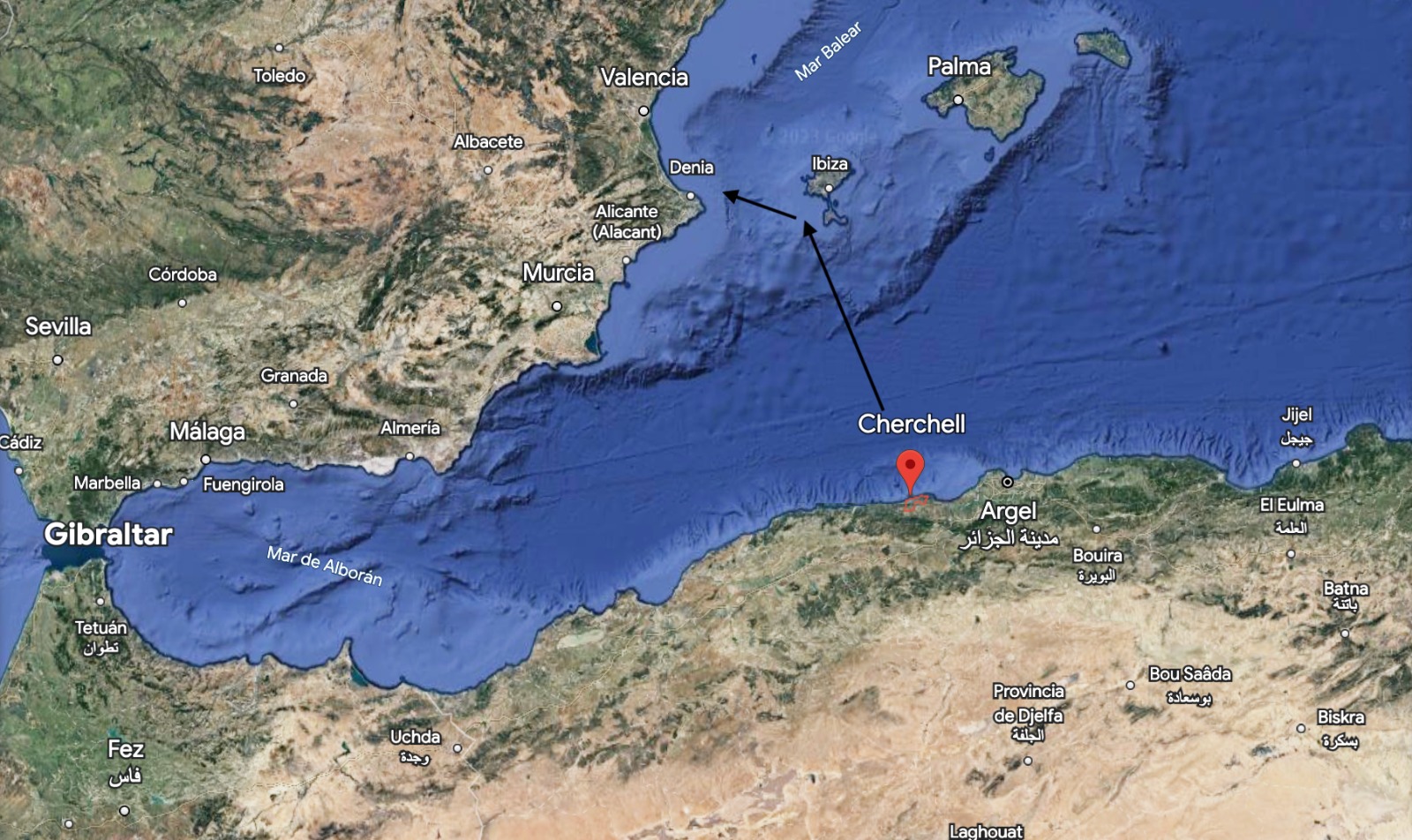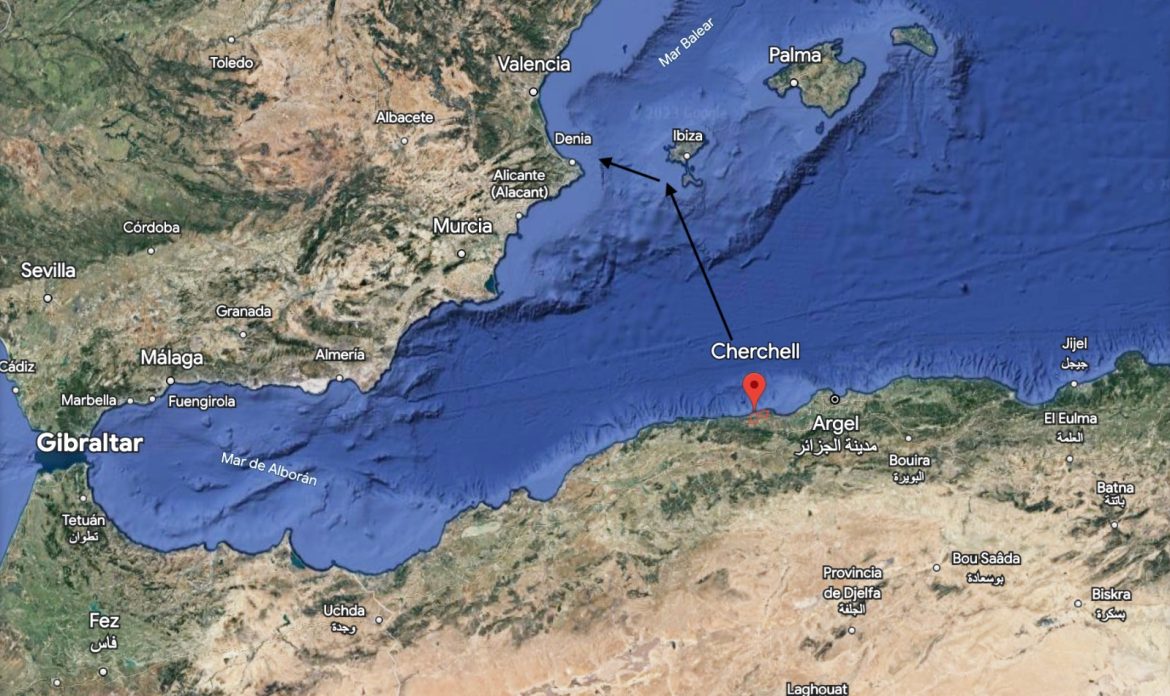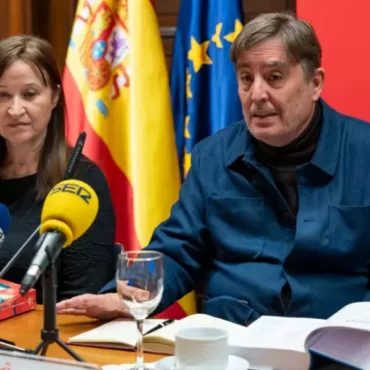-
 play_arrow
play_arrow
BayRadio Listen Live Broadcasting in Spain
Fishermen from Dénia and Xàbia Find 7 Drowned Victims in a Boat Departing from Algeria


The boat capsized during a storm on March 21st after departing from the small Algerian port of Cherchell en route to Ibiza, along what is known as the Western Mediterranean route, one of the deadliest routes for reaching the Spanish coasts.
The clothing found has allowed the identification of the first two bodies recovered by the fishing nets, two young Algerians who reportedly paid up to 5,000 euros for the journey. The fate of nine migrants, including an 8-month-old child, is still unknown.
The worst part is death, of course. But the uncertainty is also terrible: not being able to answer the question of how it is possible that fishing boats from Dénia and Xàbia have collected a total of 7 bodies in their nets since March 23rd in an approximate area of ten kilometers off the coast of Marina Alta. Now, some light has finally been shed.
The Judicial Police of Xàbia is working on the hypothesis that these seven deceased individuals were traveling in a capsized boat due to a storm on the night of March 21st. In total, there were 16 migrants on board, fifteen adults and a baby.
They had departed in the early hours of that fateful morning from the town of Cherchell, a small Algerian port with the destination, Ibiza. The majority were young Algerian males, although there were also five individuals of Guinean origin, as well as a woman who was responsible for the baby, who was 8 months old.
Never before had Marina Alta experienced the migration and death in the Mediterranean so closely, and there is a special sense of consternation among the fishing fleets of Dénia, which has recovered 6 of these bodies, and Xàbia, which found the latest one on June 12th.
March 21st: A small boat departs from Cherchell (Algeria) towards Ibiza with 16 people on board. It capsizes the same early morning.
March 23rd: A fishing boat from Dénia, while fishing for hake and prawns, rescues the first body, Amamri Souhaib, 19 years old.
March 24th: A second fishing boat from Dénia lands the body of Ben Zerhouda, 19 years old.
April 12th: The net of the Herminio and Dolores captures two more bodies, a woman and a Guinean researcher.
May 30th: Fifth body rescued. Unidentified.
June 3rd: Sixth body. Unidentified.
June 12th: Discovery of a seventh body, also unidentified and the only one recovered by a boat from Xàbia.
The migrants departed from Algeria on a mother ship, commonly used by criminal organizations, which took them to their fate, cramped aboard a Zodiac boat, when the lights of the Marina Alta coastline were already in sight. They never set foot on it: that night, a storm thwarted their journey. To this day, 9 people, including the baby, remain missing.
The first to be identified were two Algerian males, aged 19 and 23, named Amamri Souhaib and Ben Zerhouda. They were identified based on the clothing they were wearing during the journey. The NGO denounces that despite the autopsies being performed on the bodies and the Spanish authorities informing their Algerian counterparts, the families of the deceased had not yet received official news. Consequently, it was this organisation that had to communicate the tragedy to them.
The NGO describes that the case of these two victims is sadly common in Algeria. They are known as “border burners” – young men who, faced with economic problems, save or get into debt to pay the 5,000 euros demanded by human traffickers to be smuggled into Spain. Often, Spain is just a stop before reaching France, where the Algerian community is much larger.
NGOs also know that the third and fourth bodies brought to the port of Dénia by the fishing boats are those of a woman and a Guinean researcher. They are hopeful that all seven victims will eventually be identified, although it will be more challenging in the case of the last three. As previously explained by La Marina Plaza, the bodies remained underwater for two months, and when they were recovered by the fishing nets, they were already stripped of clothing and reduced to skeletons.
Therefore, it will be crucial to subject them to DNA tests with the families, which is always a process filled with obstacles requiring cooperation between the authorities of Spain, Algeria, and Guinea. All of this could take up to a year.
The bodies of the 7 migrants from Dénia and Xàbia will rest at the Forensic Anatomy Institute of Alicante, until the forensic experts request permission from the judges to bury the remains in municipal cemeteries. However, they remain hopeful that the identities of the seven can be confirmed. At that point, their families will be able to request permission for exhumation and repatriation.
Unfortunately, this is not always the case. There are occasions when the bodies of migrants are buried without ever being identified. Thus, public cemeteries in countless towns in Andalusia, Murcia, or Alicante become the modern mass graves of the 21st century.
Written by: BayRadio News
Similar posts
Recent Posts
- Robotic Surgery for Prostate Cancer: What Is Radical Prostatectomy and How Does the Da Vinci Robot Improve It
- What Is Fibromyalgia? Symptoms and Treatments of an Invisible Illness That Requires Specialized Attention
- AMASVISTA Glass: 10 reasons to choose SUNFLEX glass curtains
- Robotic Surgery, Immunotherapy and Comprehensive Care Take Centre Stage at Pancreatic Cancer Conference at Quirónsalud Torrevieja
- Robotic Surgery Against Ovarian Cancer: Greater Precision, Less Pain and Faster Recovery

Ctra. Cabo La Nao, CC La Nao, Local 6 03730 Javea, Alicante, Spain
Advertise with us
Do you have a business in Spain? Do you provide a service to the expat community in Spain? Would you like your message to reach over 500.000 people on a weekly basis?
BayRadio is a community orientated radio station offering fantastic content to our many listeners and followers across our various platforms. Contact us now and find out what Bay can do for you!
Our business is helping your business grow.
BAY RADIO S.L. © 2024. ALL RIGHTS RESERVED. WEB DESIGN BY MEDIANIC







